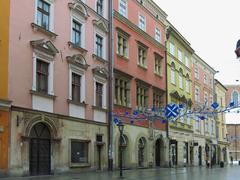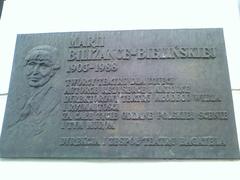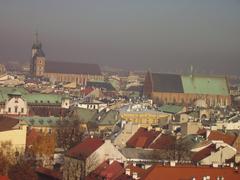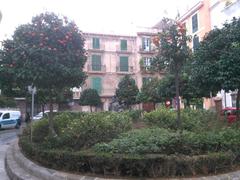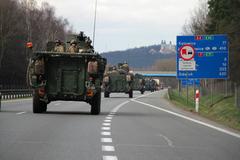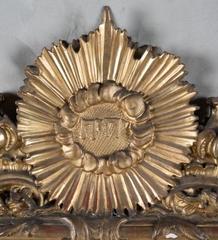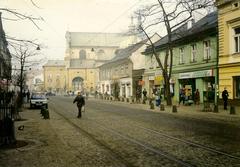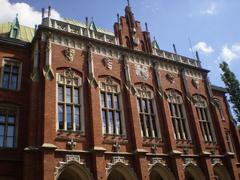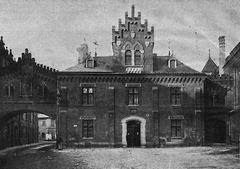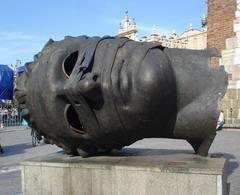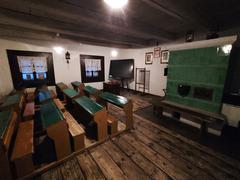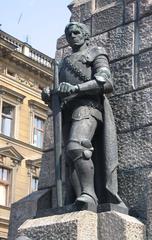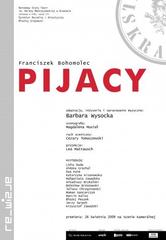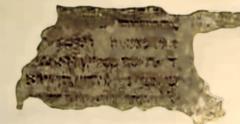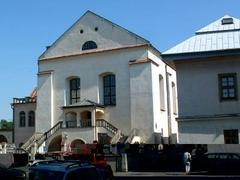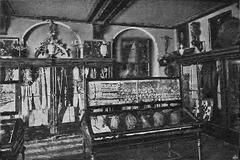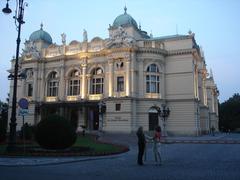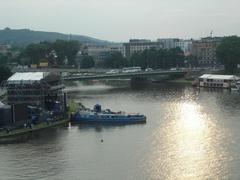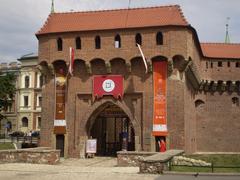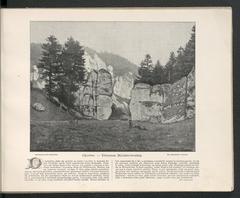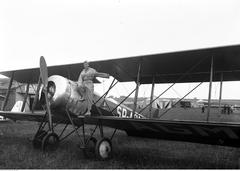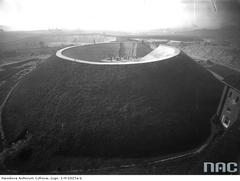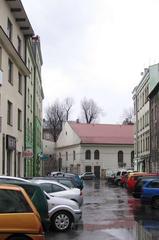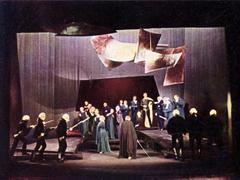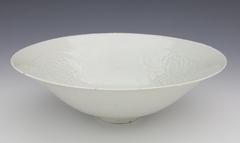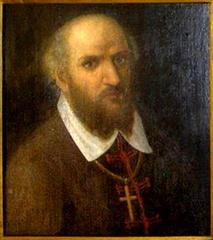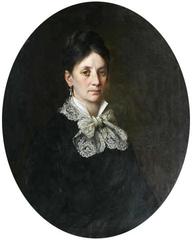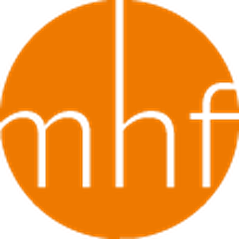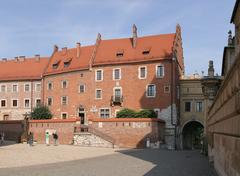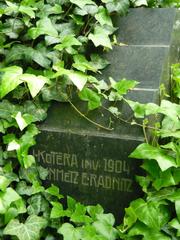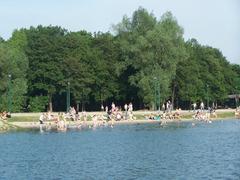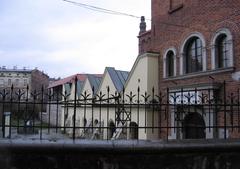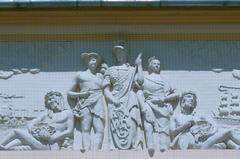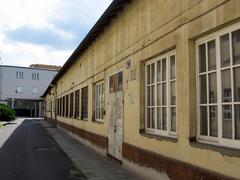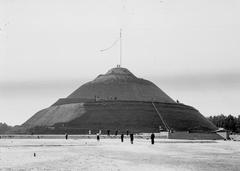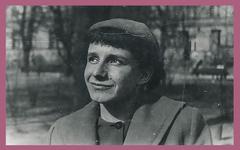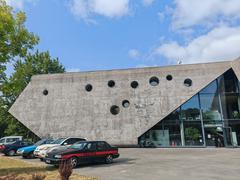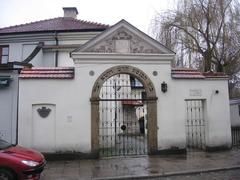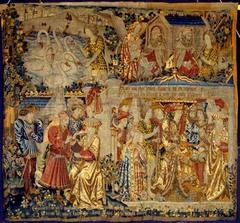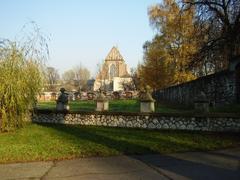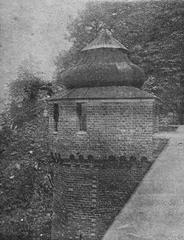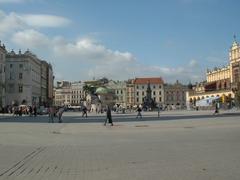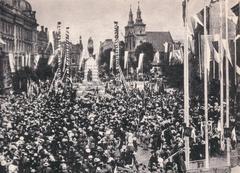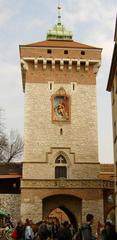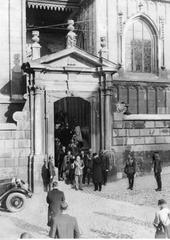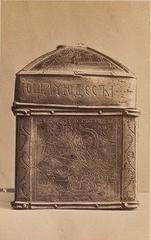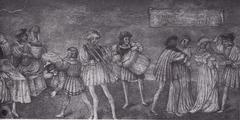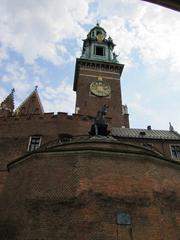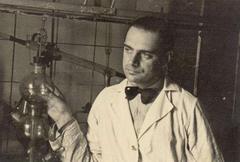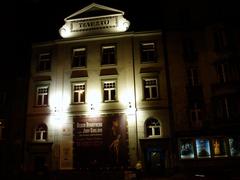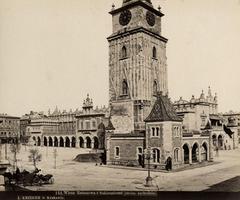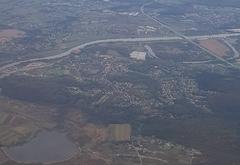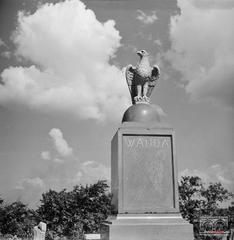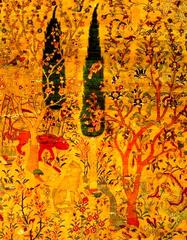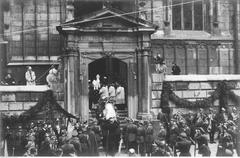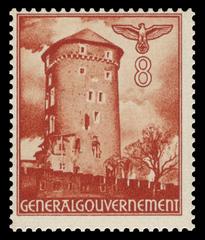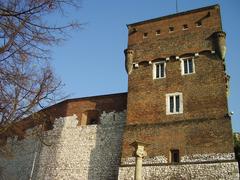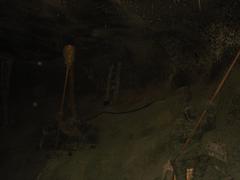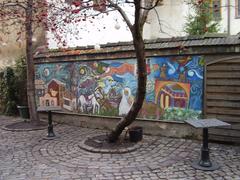Fort 52 Borek Visiting Hours, Tickets, and Kraków Historical Sites Guide
Date: 04/07/2025
Introduction
Fort 52 “Borek” is a remarkable historical and cultural site in the Kliny district of southern Kraków, Poland. Originally built between 1884 and 1886 as a key component of the Kraków Fortress system under the Austro-Hungarian Empire, the fort has evolved from a strategic military outpost into a vibrant cultural and community center. This comprehensive guide details the fort’s historical significance, distinctive architecture, visitor information—including hours and ticketing—guided tours, accessibility, and its role in Kraków’s contemporary cultural landscape. Whether you are a history buff, a family looking for educational opportunities, or a cultural explorer, Fort Borek offers an enriching experience.
Table of Contents
- Introduction
- Historical Overview
- Visiting Fort 52 Borek
- Cultural Events and Community Activities
- Frequently Asked Questions (FAQ)
- Conclusion and Planning Your Visit
- References
Historical Overview
Origins and Construction (1884–1886)
Fort 52 “Borek” was constructed as part of the southern defensive ring of the Kraków Fortress, located strategically between the valleys of the Wilga and upper Vistula rivers to guard the crucial Vienna Road and nearby railway lines. The fort’s design, attributed to Daniel Salis-Soglio, introduced innovative features such as a two-tiered rampart system and Kraków’s first three-level underground intersection. These elements made it a prototype for later Austro-Hungarian fortifications, including those in Przemyśl (Twierdza Kraków; Wikipedia; CK Podgórza).
Architectural Features and Innovations
Designed as a main artillery fort, Borek features a double-rampart system: an elevated artillery rampart and a lower infantry rampart. The fort’s hybrid design blends Austrian, Belgian, French, and German fortification concepts, incorporating lessons from recent conflicts. Its robust defensive structures include caponiers, extensive underground corridors, and a unique three-level intersection for efficient troop and supply movements (Odtur; Wasza Turystyka).
Military Role and Operational History
Fort Borek’s purpose was to secure Kraków’s southern approach, working in tandem with neighboring forts such as 52a “Jugowice” and 52½ “Skotniki”, effectively locking down key entry points into the city. While the fort saw no combat during World War I, it served as a military warehouse in the interwar period (Wikipedia).
World War II and Postwar Use
During the German occupation in World War II, the fort was converted into a prisoner-of-war camp for French and Soviet captives. A notable event was the forced landing of an American B-17 bomber near the fort in December 1944. After the war, the site was repurposed for civilian uses but eventually fell into disrepair (Odtur; Twierdza Kraków).
Decline and Revitalization (2013–2022)
By the late 20th century, Fort Borek was largely abandoned. A decade-long revitalization project backed by European Union funding and local heritage organizations restored the fort’s historic features, adapted the interiors for modern use, and created a surrounding green park with commemorative installations (Visit Małopolska; Fortress Krakow).
Contemporary Role and Cultural Significance
Today, Fort Borek houses a branch of the Podgórze Cultural Centre (Centrum Kultury Podgórza) and the Library of Polish Song. The site offers guided tours, exhibitions, concerts, workshops, and family-friendly events, serving as both a historical monument and a lively community hub (CK Podgórza; Borek CK Podgórza).
Visiting Fort 52 Borek
Hours
- Standard Opening: Tuesday to Sunday, 10:00 AM to 6:00 PM (last admission/tour at 5:00 PM).
- Closed: Mondays and select public holidays.
- Event Hours: Extended or weekend hours possible during special events. Always check the official website for updates.
Tickets & Booking
- Standard Tickets: Adults 20 PLN; students/seniors 12 PLN; children under 7 free.
- Group Discounts: Available for families and organized groups.
- Booking: Purchase online via the CK Podgórza website or at the entrance. Advance booking is highly recommended, especially for guided tours.
- Special Events: Some events or exhibitions may require separate tickets.
Accessibility
- Mobility: Ramps and elevators provide access to most main areas. Some historic underground passages may be difficult to navigate; contact staff in advance for assistance.
- Other Facilities: Restrooms and basic visitor facilities are available.
How to Get There
- Address: ul. Forteczna 146, Kraków (Kliny district)
- Public Transport: Tram lines 8, 13, 24 (stop: Rondo Matecznego); bus lines 134, 178 serve the area.
- Parking: Limited; public transportation is recommended due to the residential setting.
Guided Tours and Educational Programs
- Languages: Polish (regular), English (by prior arrangement).
- Duration: Typically 90 minutes.
- Booking: Required in advance for English-language tours and group visits.
- Content: Tours cover the fort’s architecture, military history, and restoration, including access to underground corridors and reconstructed barracks (Borek CK Podgórza).
Travel Tips
- Wear sturdy, comfortable footwear and bring a jacket for cooler underground areas.
- Photography is allowed; flash and tripods may be restricted in certain areas.
- Check event schedules for family workshops, educational programs, and festivals.
Cultural Events and Community Activities
Fort Borek is a vibrant cultural venue, offering:
- Educational Workshops & Museum Lessons: Interactive history and architecture workshops for all ages.
- Art Exhibitions & Theater Performances: Regular exhibitions, children’s theater sessions, and creative workshops (borek.ckpodgorza.pl).
- Music and Literary Events: Concerts, poetry readings, and musical heritage events (pik.krakow.pl).
- Community Festivals: Annual Fort Borek birthday celebrations, open-door days, and seasonal festivals (borek.ckpodgorza.pl).
- Family and Youth Activities: Summer day camps, chess tournaments, science workshops, and creative competitions.
The fort’s green park offers a relaxing space for residents and visitors, and the site’s ongoing revitalization strengthens community pride and engagement (krakow.pl).
Frequently Asked Questions (FAQ)
Q: What are standard visiting hours?
A: Tuesday to Sunday, 10:00 AM–6:00 PM; closed Mondays. Event hours may vary.
Q: How do I book a guided tour?
A: Book via the official website or contact CK Podgórza by phone/email.
Q: Are there tours in English?
A: English-language tours by prior arrangement. Check availability in advance.
Q: Is the site accessible for wheelchairs or those with reduced mobility?
A: Most main areas are accessible; some historic areas may be more challenging. Contact staff for assistance.
Q: Is entry free?
A: General entry is free for most cultural programs; special exhibitions/tours may require a ticket.
Q: Can I take photos?
A: Yes, except where restrictions are indicated.
Conclusion and Planning Your Visit
Fort 52 “Borek” is a unique blend of Kraków’s military heritage and modern cultural life. Its innovative architecture, immersive guided tours, educational programs, and lively cultural events make it a must-visit for anyone seeking to understand the city’s past and present. To ensure the best experience, check the official website for the latest visiting hours and ticket information, and consider booking tours in advance, especially for English-speaking or group visits.
For up-to-date event announcements, multimedia content, and exclusive guides, follow Fort Borek and Centrum Kultury Podgórza on social media, and download the Audiala app for audio tours and curated Kraków experiences.
References
- Twierdza Kraków
- Wikipedia: Fort główny artyleryjski 52 “Borek”
- CK Podgórza Cultural Centre: Fort Borek
- Visit Małopolska
- Borek CK Podgórza
- TracesOfWar
- Wasza Turystyka
- Odtur
- pik.krakow.pl
- krakow.pl
- dni-twierdzy-krakow.pl
- allevents.in
